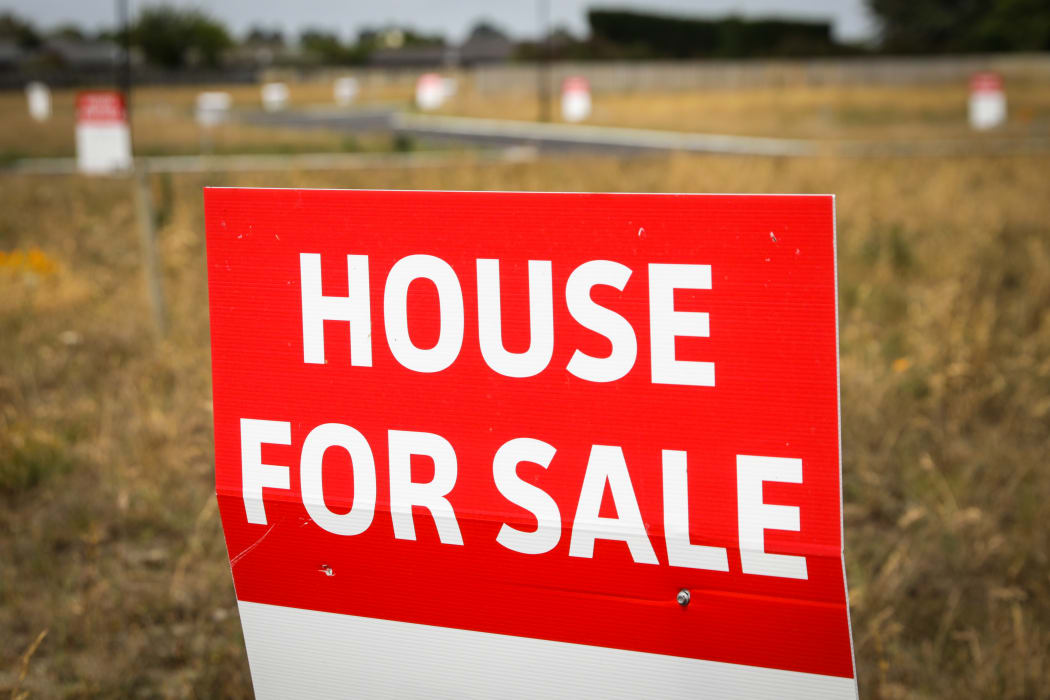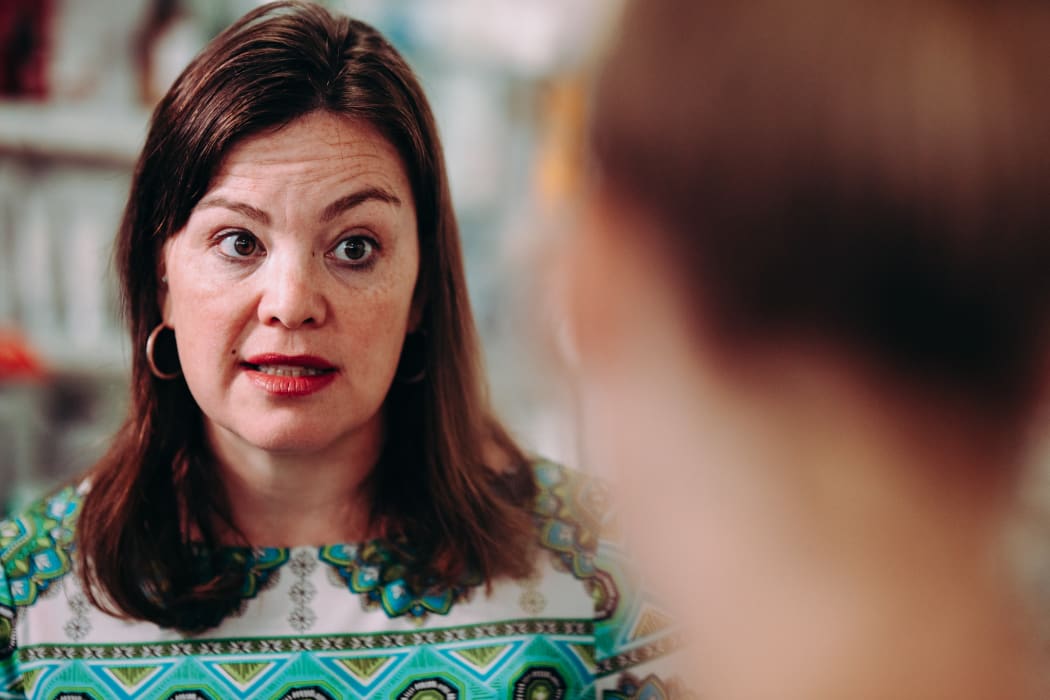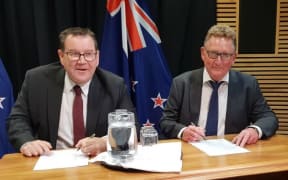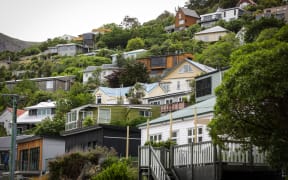The Greens want to make it harder for property investors to get a mortgage, and to make them pay a capital gains tax whenever they sell a house.

The Greens want the government to empower the Reserve Bank with new tools to urgently address the boom in lending to property investors. Photo: RNZ / Nate McKinnon
The party released a four-point plan that it says will help stop an accelerating housing crisis, which continues to lock ordinary New Zealanders out of the market.
It comes as Finance Minister Grant Robertson is expected to announce policies to address housing supply side issues next week.
Greens Finance spokesperson Julie Anne Genter said her party's plan was calling for bold, transformative measures, including removing tax incentives for investors by ditching the five-year cap for the bright line test.
"Anyone selling a residential investment property that is not their primary home should have to pay tax on profits.
"Any cap extension, to 10 or 15 years for example, just kicks the can down the road a few years, while property investors will hold on to their properties until the day after the bright line test is over," she said.
The Greens also want to regulate investors' access to loans by ending interest-only mortgages, requiring cash deposits rather than just equity from other homes, and putting restrictions on debt-to-income ratios - something Reserve Bank Governor Adrian Orr has asked the government for.

Greens Finance spokesperson Julie Anne Genter says its time the Labour government removed tax incentives for investors to buy property. Photo: RNZ /Dom Thomas
"The government must empower the Reserve Bank with new tools to urgently address the boom in lending to investors, who are shutting first-home buyers out of the market. If the Bank doesn't use them, then the government needs to step in with ministerial direction under the Reserve Bank Act, or even legislation.
"Debt-to-income ratios should be allowed and used to slow down the highly-leveraged, risky mortgages that underpin housing speculation. New requirements for property investors to actually have saved a cash deposit, rather than leveraging equity in other properties, would help level the playing field with first-home buyers," Genter said.
The Greens are also urging the government to provide direct economic stimulus in the form of income support, rather than relying on the Reserve Bank, and calling for a massive urban redevelopment and home building programme led by Kāinga Ora.
"Kāinga Ora needs to be properly supported to acquire land and redevelop it into thriving and accessible communities, with affordable homes, green spaces, and clean transport links. That means increasing Kāinga Ora's debt limit, and working with Community Housing Providers and iwi to build more long term rental homes and papakāinga housing.
"Kāinga Ora should be aiming for at least 5000 new builds every year until supply matches demand and prices stabilise at affordable levels. After that, it should be mandated to maintain a constant pipeline of housing development to match expected population increases," Genter said.
House prices set for another surge this year - Kiwibank
Loan-to-Value Ratio restrictions were reintroduced in March, and from May, investors wanting to buy an investment property will need a 40 percent deposit.
However, Kiwibank chief economist Jarrod Kerr says house prices could rise by 25-30 percent at its peak this year if stronger action is not taken to combat the housing crisis.
It said tightened LVR might not be having as much of an impact on investor activity as hoped and other measures were needed to tame the housing market.
Kerr told Morning Report both the Reserve Bank and the government needed to ramp up efforts to treat the chronic shortage of supply.
"We know what we've seen in the last year is unsustainable, we don't want house prices to rise another 10,15, 20 percent from here, but it's what we're likely to get this year.
"Given the momentum we've got, given the loans that we as a banker are writing right now, there is still momentum in the market, and house prices will be up 25-30 percent by the middle of the year.
"We need to cool that, we need to slow it down and face the problem in the market that we have a shortage."
But if investors were shut off completely, then the rental property market would become tighter and rents could rise too, he said. Instead, he'd like to see investors being encouraged to put their money into new quality builds.
"[It] would be a good way to channel resources into actually increasing the stock of dwellings.
"But New Zealand's problem is we have not unlocked enough land, we've got plenty of land, and the ability to build a house is restricted by inhibitive resource costs, materials costs, consenting processes - it's very hard to build houses in New Zealand, doesn't have to be."
Kerr said a good example of managing the problem could be seen in Australia, where they faced a similar issue and decided to shift resources out of mining and into housing instead, which reduced prices in higher density areas where there was oversupply.
"That to me, is what you'd love to see. You actually saw a market that was undersupplied becoming slightly oversupplied in certain areas and the affordability of the market improved."





